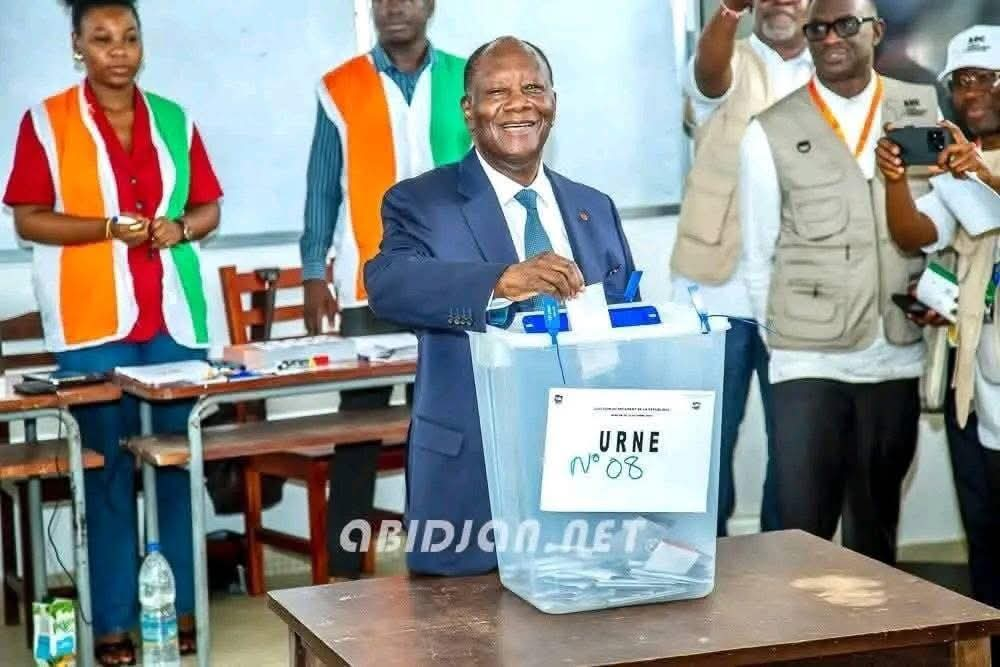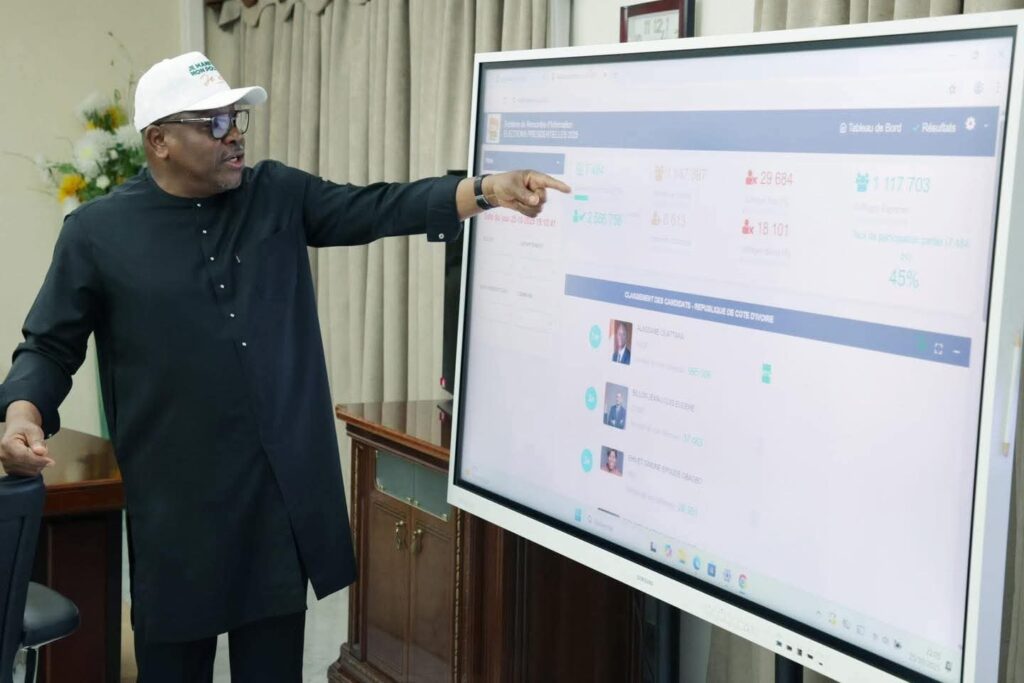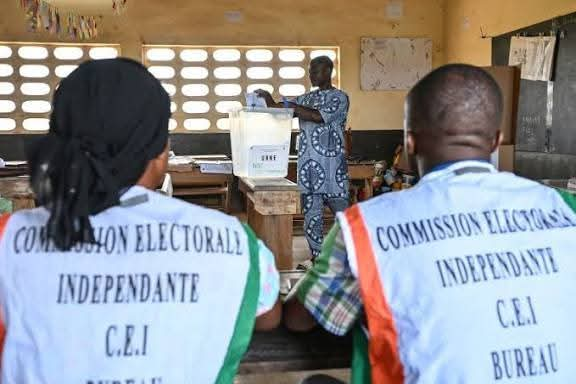Ivorians cast their ballots peacefully on Saturday, October 25, 2025, in a presidential election marked by calm, low voter enthusiasm, and the absence of several key opposition leaders. The poll, which was boycotted by sections of the electorate, took place without major incidents but reflected clear political fatigue across the country.
Nearly nine million registered voters were called to choose among five candidates — incumbent President Alassane Ouattara, Kouadio Konan Bertin (KKB), Jacques Mangoua, Henriette Lagou, and Dr. Mamadou Coulibaly. Of these, President Ouattara, in power since 2011, remains the dominant figure, seeking to extend his leadership amid calls for generational change.

Although voting was peaceful nationwide, enthusiasm was noticeably low. Turnout was stronger in the north, where Ouattara enjoys firm support, but significantly lower in parts of the south and west, regions traditionally aligned with opposition parties. Several polling stations in Abidjan, San Pedro, and Gagnoa reported sparse voter attendance throughout the day.
“The process was calm and transparent, but there wasn’t the same excitement as in past elections,” said a civil society observer in Abobo. “Many voters stayed home, especially in opposition areas.”
At around 10 p.m., four hours after polls closed, the Independent Electoral Commission (CEI) held a press briefing in Abidjan. CEI President Ibrahime Kuibiert Coulibaly praised the orderly conduct of the vote and reported that vote counting and data compilation were ongoing, supported by digital tools enabling real-time transmission of results from polling stations across the country.
“The voting process was carried out in good conditions overall,” Coulibaly said. “We thank Ivorians for their discipline and civic responsibility. The collation of results continues under strict supervision.”

Preliminary estimates from the CEI suggest voter turnout of around 50%, a moderate figure that underscores both regional disparities and the effect of the partial boycott.
The official results are expected to begin rolling out from Monday, October 27, as the CEI finalizes verification from all districts.
Political analysts view this election as a key test of Côte d’Ivoire’s democratic stability after years of political tension and post-election unrest. While President Ouattara’s supporters hope for a decisive victory to consolidate peace and economic progress, critics argue that lasting stability will depend on political inclusiveness and national reconciliation.
For now, the country remains calm but cautious, as Ivorians wait for Monday’s official results — and for clarity on the next chapter of their nation’s political journey.

